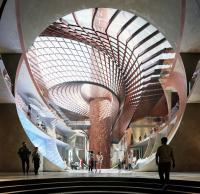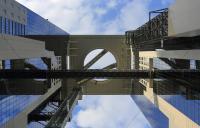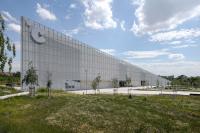Corato City Theater
Corato, Italy
The main objective of this project, as devised by Alvisi Kirimoto, was to create a place of high-quality musical and theatrical experience whilst restoring a historic icon. The 510 seats strategically placed within the space perfectly aid to create the best acoustical sound without the need to fill the space with extra electro-amplification unless the show requires it. The architects’ consideration of noise and sound make this project a masterpiece. Each stall, gallery and box that follows the horseshoe shape arrangement of the room allows for the amplification and modulation of voice and music; realizing thus a theater typology that is both in line with contemporary practices and respectful of its traditional Italian roots.
The result of the project is the restoration of a significant structure but also the creation of a cultural and symbolic reference within the city's core in the tradition of a 19th century theater. The image of the Corato Theater means to address a diverse public: from the older generations to the younger audiences that may not be as familiar with the particular tradition of attending the theater. The restoration of the building was planned and designed to implement modern technology and instrumentation, whilst still retaining several pertinent details of construction and form that recall a more classical approach.
Public access to the building is by means of the Piazza Marconi, which leads people directly into a recently renovated courtyard. Glass partitions were added to the space in order to illuminate it and reflect the light, making the space immeasurably attractive and a metaphorical beacon for the city. The interior of the forum and atrium were meticulously restored. The colors, the treatment of the stone on the walls and ground, moldings, etc, that before were thoroughly degraded, now appear bright and polished. The facades received similar attention, since they were also in severe conditions. The architects used the restoration process as an opportunity not only to redefine the design of the building, but its character as well by merging antique with modern motifs. In essence, the theatrical experience is enhanced spectacularly by architecture and the firm's diligence with detail, technology and art.
- Architects
- Alvisi Kirimoto
- Year
- 2012
- Acoustics
- Eng. Jurghen Reinhold Muller
- Structures
- Eng. Enrico Petralia
- Mechanical systems
- Eng. Fabrizio Pizziconi
- Electrical systems
- Eng. Mario Semproni









